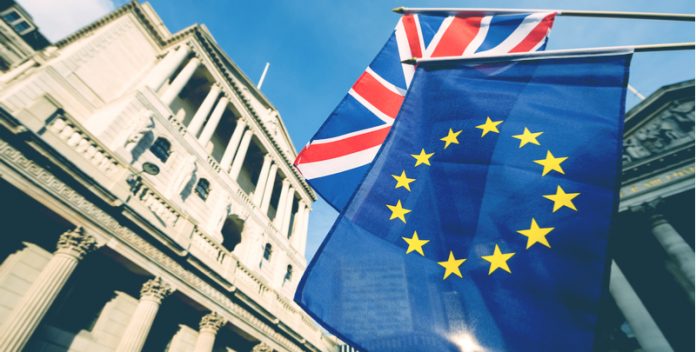The pound gave up gains from earlier in the week falling 0.2% versus the euro on Wednesday. The pound euro exchange rate dropped to a low of €1.0812, in the fifth negative session out of six. The pound is edging higher versus the euro in early trade on Thursday.
| What do these figures mean? |
| When measuring the value of a pair of currencies, one set equals 1 unit and the other shows the current equivalent. As the market moves, the amount will vary from minute to minute. If the euro amount increases in this pairing, it’s positive for the pound.
Or, if you were looking at it the other way around: 1 EUR = 0.87271 GBP In this example, €1 is equivalent to approximately £0.87. This measures the euro’s worth versus the British pound. If the sterling number gets larger, it’s good news for the euro. |
The pound was out of favour in the previous session as UK politics took a turn for the worse. The shadow Chancellor, Labour’s John McDonnell said that Labour would not stand in the way of a second Scottish referendum. Assuming Labour leader Jeremy Corbyn’s backing, the motives are clear. A Scottish National Party — Labour Party coalition could keep the Conservatives out of power if Boris Johnson calls an early election. Polls suggest that an independence vote in Scotland would result in a YES vote to independence.
Whilst this route could mean that a no deal Brexit is avoided, it could also mean more political instability, as Scotland takes as step closer to separating from the UK.
| How does political risk impact on a currency? |
| Political risk drags on the confidence of consumers and businesses alike, which means both corporations and regular households are then less inclined to spend money. The drop in spending, in turn, slows the economy. Foreign investors prefer to invest their money in politically stable countries as well as those with strong economies. Signs that a country is politically or economically less stable will result in foreign investors pulling their money out of the country. This means selling out of the local currency, which then increases its supply and, in turn, devalues the money. |
Today the focus remains on Brexit. The pound found some relief this morning in comments from US Secretary of State Mike Pompeo, who told his UK counterpart Dominic Raab that the US was ready to sign a free trade deal at the earliest possible time. This would soften the blow of the UK losing access to the European single market in the event of a no deal Brexit.
ECB Economic Bulletin In Focus
The euro was in favour in the previous session despite German industrial production figures sparking recession fears. German industrial production declined -1.5% in June. This is significantly more than -0.4% decline forecast. This is the latest sign that Europe’s largest economy contracted in the second quarter as exporters get caught up in the ongoing trade disputes.
The longer than the slow down of the manufacturing sector continues, the more likely that other sectors of the German economy will be dragged down.
Today the European Central Bank release its economic bulletin. Investors will be paying particular attention to any comments on trade tensions and subdued growth. Continued weakness in these areas could increase expectations of an interest rate cut by the central bank later this year.
| Why do interest rate cuts drag on a currency’s value? |
| Interest rates are key to understanding exchange rate movements. Those who have large sums of money to invest want the highest return on their investments. Lower interest rate environments tend to offer lower yields. So, if the interest rate or at least the interest rate expectation of a country is relatively lower compared to another, then foreign investors look to pull their capital out and invest elsewhere. Large corporations and investors sell out of local currency to invest elsewhere. More local currency is available as the demand of that currency declines, dragging the value lower. |
This publication is provided for general information purposes only and is not intended to cover every aspect of the topics with which it deals. It is not intended to amount to advice on which you should rely. You must obtain professional or specialist advice before taking, or refraining from, any action on the basis of the content in this publication. The information in this publication does not constitute legal, tax or other professional advice from TransferWise Limited or its affiliates. Prior results do not guarantee a similar outcome. We make no representations, warranties or guarantees, whether express or implied, that the content in the publication is accurate, complete or up to date.
The content at CurrencyLive.com is the sole opinion of the authors and in no way reflect views of TransferWise Ltd.





